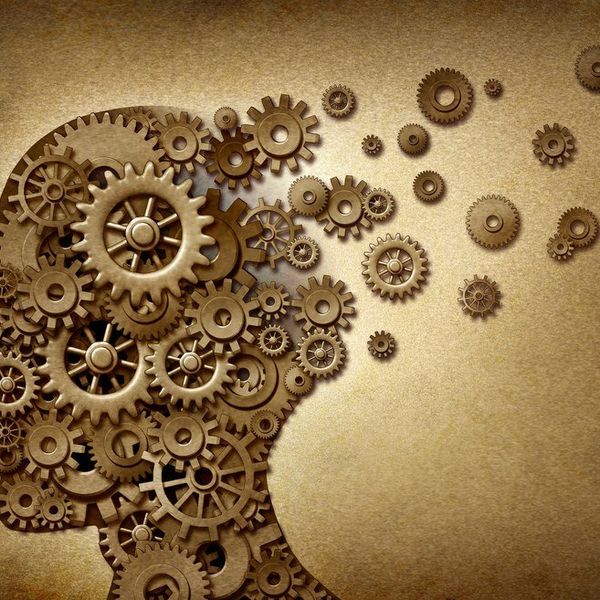In high school, I took Psychology 101. The class was pretty standard; it gave a basic explanation of the brain and its processes, as well as a general explanation of a few history's most important psychological experiments. The most memorable part of the class was what I remember being called Show and Tell. For extra credit, we could pick a mental illness and act out its general symptoms for the class. Only two people elected to do the extra credit (one of whom was the teacher), but what was most shocking was how hard it was for the class to guess the mental illness. Having a basic understanding of the human brain and a few of its illnesses can make us feel as if we know more than we actually do. Though seemingly harmless, this ignorance of mental illness causes harm to an entire sector of the population.
Most people group all mental illnesses under one umbrella term -- crazy. Obsessive compulsive disorder is when people go crazy if things aren't neat. Generalized anxiety disorder is when people go crazy if they're stressed. Schizophrenia is when people are ... crazy. What many people fail to realize is that mental illnesses are unique and are uncontrollable without help from a trained professional. Wanting all of your pencils in a straight line is not the same as having OCD. It's important that we work to educate ourselves as we may have to deal with mental illness at some point in our lives. Cases of schizophrenia and PTSD are more likely to develop later in a person's life (meaning early to mid-30s).
It's important that we realize that symptoms of mental illness are not always detectable by looking at a person. Along with this, it is important that we learn the real behavioral symptoms of mental illnesses, in order to ensure the safety of ourselves and those around us.
Mental Illnesses are often lumped together into one term: crazy. However, it’s not that simple. There is a myriad of mental illnesses out there, and here are a few of the most commonly occurring ones (and therefore, the most misunderstood).
Depression: Many people don’t understand that there are two different kinds of depression. One is a generalized term for a gloomy or unhappy state of mind; therefore, it is politically correct for someone to say “I’m depressed.” The other is a mental condition that comes with feelings of inadequacy, lack of energy, loss of appetite, and other symptoms that involve a person's physical state.
Schizophrenia: Here is a term that we can’t begin to understand just by looking at the definition. Cases of schizophrenia are as unique as the patients themselves. According to WebMD, schizophrenia involves a breakdown in the relation between thought, emotion, and behavior. It’s usually linked to a withdrawal from reality, which causes the inability to differentiate between what is real and what is not. Symptoms are also split into positive and negative. Positive symptoms, like “symptoms that are exaggerated forms of thinking or behavior that become irrational,” explain for example delusions and hallucinations. Negative symptoms refers to the person’s lack of normal behavior. Two of the most shocking of these are flat and blunted affects. A blunted affect is when a person's ability to express emotions through their facial expressions and vocal tone has been reduced. Along with this, a flat affect is when a person has no or nearly no emotional expression.
Bipolar Disorder: According to the National Institute of Mental Health, bipolar disorder “is a brain disorder that causes unusual shifts in mood, energy, activity levels, and the ability to carry out day-to-day tasks.” Everyone goes through emotional ups and downs on a daily basis. However, the shifts that a person with bipolar disorder can face may be extremely long and contain feelings of intense happiness and depression.
Dissociative Identity Disorder: This is also called multiple personality disorder, and it is not a form of schizophrenia, as many people assume. According to Psychology Today, DID is “a severe condition in which two or more distinct identities, or personality states, are present in—and alternately take control of—an individual.” It is also more accurately described as “a fragmentation, or splintering, of identity rather than by a proliferation, or growth, of separate identities.” This means that a person with DID does not continue to become a myriad of personalities, but that their personalities continue to break down.
Obsessive Compulsive Disorder: According to the NIMH, OCD is a disorder that characterized by uncontrollable, reoccurring thoughts and behaviors that a person feels that they have to repeat. It also stresses that not all habits are compulsions and not all thoughts are obsessions. In addition, NIMH establishes the differences in the brain between people with OCD and people without it. Brushing your teeth twice a day is not OCD, but it is a wise decision.
Along with ignorance, there is this idea that people with a mental illness have no hope of leading a normal life. While it is unfortunate to hear about people with PTSD and schizophrenia taking their lives out of mental stress and confusion, there are lots of success stories that tell of people’s triumph over their mental illness.It's foolish not to educate ourselves about mental illness in an age when the knowledge is at our fingertips. We live in a country where current debates about gun control, veterans, and other issues revolve around mental illness. We can't tune into the conversation without being able to participate.





















